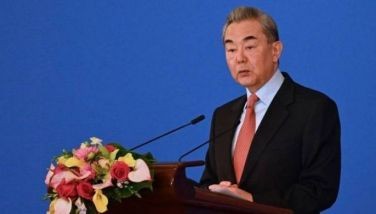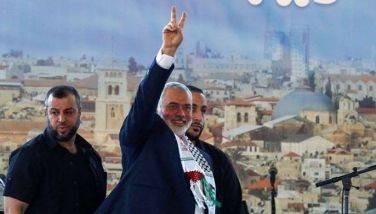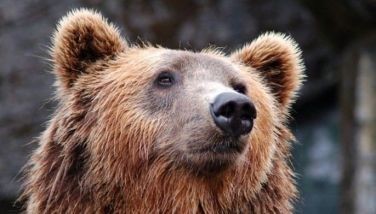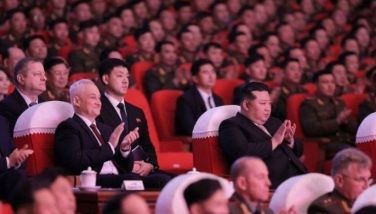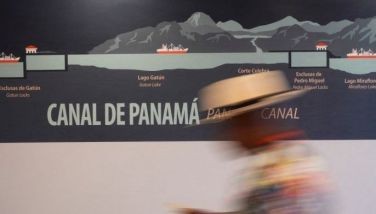EU warns will block AstraZeneca vaccine exports
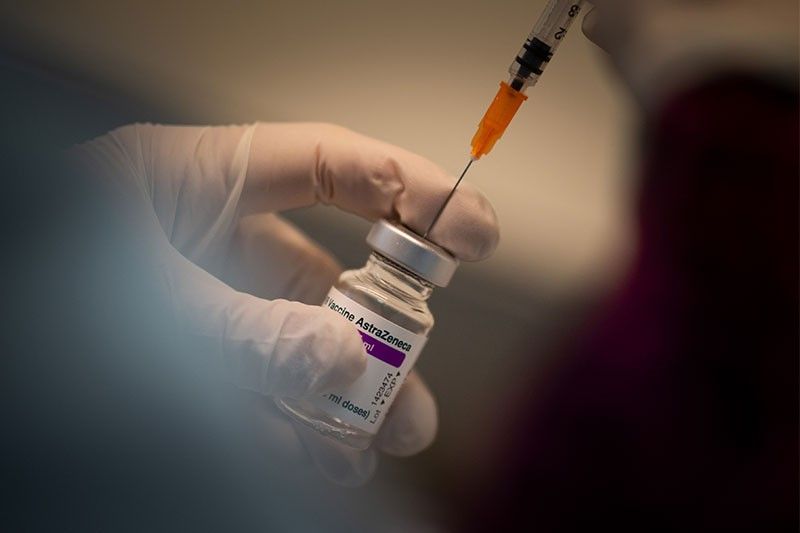
BRUSSELS, Belgium — The European Union warned Thursday that it will ban drugs firms from exporting coronavirus vaccines to the UK and other countries until they make good on their promised deliveries to the bloc.
EU chief Ursula von der Leyen's stark warning — which could hit UK-based AstraZeneca first — came after a video summit of all 27 EU leaders and stoked fears that cross-Channel rivalry could damage global efforts to combat the pandemic.
Some leaders stressed that an embargo should be a last resort if negotiations for a better way of sharing vaccine production come up short, but von der Leyen and France's President Emmanuel Macron adopted an uncompromising tone.
"I think it is clear that first of all the company (AstraZeneca) has to catch up, has to honour the contract it has with the European member states, before it can engage again in exporting vaccines," von der Leyen told a news conference.
The focus of the latest row is an AstraZeneca plant in the Netherlands, which Prime Minister Boris Johnson's government claims as part of the British vaccine supply chain.
Macron declared his firm support for the Commission's plan, declaring "an end to naivety".
"I support the idea that we should block all possible exports for as long as the labs don't respect their commitments to Europeans," he said.
The Netherlands and Belgium, centres of EU vaccine production, are skittish at talk of an embargo, fearful that disruption to global supply chains could hurt other firms' production.
"The supply chains are so intricate, they're so intertwined, so it's not automatically a good thing if this new instrument is to be applied," Dutch Prime Minister Mark Rutte said, citing the example of a Belgian plant making BioNTech/Pfizer vaccines that relies on raw materials from Britain.
But Rutte also told reporters he warned Johnson that the Netherlands would enforce any EU decision to halt exports — even as he hoped for a quick resolution.
"Luckily at least the two (sides) are talking and it seems, I think, on Saturday or soon after they could come to an agreement," Rutte told reporters.
"That would be very helpful, because we are friends, the UK and the rest of Europe, and we need each other."
London was alarmed by von der Leyen's decision this week to tighten Europe's export control mechanism to give the Commission more leeway to block exports if EU vaccine supplies are at stake.
Johnson is also concerned that a ban that extends beyond UK-based AstraZeneca's disputed supply could also block BioNTech/Pfizer vaccines produced in Belgium.
Tempers fray
That would imperil Britain's vaccination drive, which has so far proved more successful than those of EU member states, which have been hit by a massive shortfall in deliveries.
As tempers frayed this week, a joint statement by the British government and the commission on Wednesday said both sides were looking for ways to cooperate towards a "win-win" compromise, but no details were given.
While Britain accuses the European Union of vaccine "nationalism", von der Leyen noted that the bloc was "the region that exports the most vaccines worldwide".
She said that, since the beginning of December, companies in the EU had sent 77 million doses of Covid vaccines out of the bloc -- with an EU official noting that more than a quarter of those went to Britain.
But von der Leyen said the next three months will see overall vaccine supplies more than triple and the EU -- population 450 million -- is on track to see 70 percent of adults fully vaccinated by mid-September.
AstraZeneca is expected to deliver 30 million doses to the EU in the first quarter, a pledge already radically reduced from the 120 million doses it was initially contracted to provide.
Vaccine war?
Another sensitive issue is the distribution of vaccines within Europe.
A group of six smaller states led by Austria demanded more doses after they missed an earlier opportunity to secure a bigger share of costlier vaccines by betting on the cheaper — but unreliably supplied — AstraZeneca one.
But after the talks, Rutte said Austria does not seem in "bad shape at the moment" and member states had asked ambassadors to find a solution for harder-hit Bulgaria, Croatia and Latvia.
Pharma giants Sanofi and GSK said on July 29, 2020, that they have agreed to supply Britain with up to 60 million doses of a potential COVID-19 vaccine. The agreement covers a vaccine candidate developed by France's Sanofi in partnership with the UK's GSK and is subject to a "final contract."
This thread collects some of the major developments in the search for a vaccine to ease the new coronavirus pandemic. (Main photo by AFP/Joel Saget)
As negotiations towards a new pandemic treaty pick up pace, observers warn of watered-down efforts to ensure equitable access to the medical products needed to battle future Covid-like threats.
Shaken by the pandemic, the World Health Organization's 194 member states are negotiating an international accord aimed at ensuring countries are better equipped to deal with the next catastrophe, or even prevent it altogether.
The process is still in the early stages, with the aim of reaching an agreement by May 2024.
But critics warn that revisions being made to the preliminary negotiating text are weakening the language -- notably in a key area aimed at preventing the rampant inequity seen in access to vaccines and other medical products during the Covid pandemic.
"I think it is a real step backwards," Suerie Moon, co-director of the Global Health Centre at the Geneva Graduate Institute, told AFP. — AFP
Africa's first mRNA vaccine hub is ceremonially launched on Thursday to acclaim from the UN's global health chief, who hailed it as a historic shift to help poor countries gain access to life-saving jabs.
The facility was set up in the South African city of Cape Town in 2021 on the back of the success of revolutionary anti-Covid vaccines introduced by Pfizer/BioNTech and Moderna.
"This precious project... will bring a paradigm shift in addressing the serious problem we faced, the equity problem, during the pandemic, so (that) it's not repeated again," World Health Organization (WHO) head Tedros Adhanom Ghebreyesus tells a media briefing to mark the inauguration. — AFP
China has approved its first locally developed messenger RNA (mRNA) vaccine against Covid-19, its manufacturer said Wednesday, months after the relaxation of strict Covid-zero regulations sparked a surge in cases.
The vaccine, developed by CSPC Pharmaceutical Group Ltd, has been approved for "emergency use" by Beijing's health regulator, the company said in a statement.
It showed high efficacy in a trial in which it was used as a booster shot for people who have been given other types of vaccines, the company added, without offering further details. — AFP
COVID-19 vaccine maker Novavax raises doubts about its ability to continue its business, announcing plans to cut spending after struggles in rolling out its coronavirus jab.
Shares of Novavax plummeted 25 percent in extended trading, after the company reported fourth-quarter earnings that missed analyst estimates.
While the firm should have enough money to fund operations, the situation is "subject to significant uncertainty," it says in a statement. — AFP
The protection against Covid-19 from being previously infected lasts at least as long as that offered by vaccination, one of the largest studies conducted on the subject says.
Ten months after getting Covid, people still had an 88% lower risk of reinfection, hospitalisation and death, according to the study published in the Lancet journal.
That makes this natural immunity "at least as durable, if not more so" than two doses of Pfizer or Moderna's vaccines, the study says.
The authors nevertheless emphasized that their findings should not discourage vaccination, which remains the safest way to get immunity. — AFP
- Latest
- Trending
















